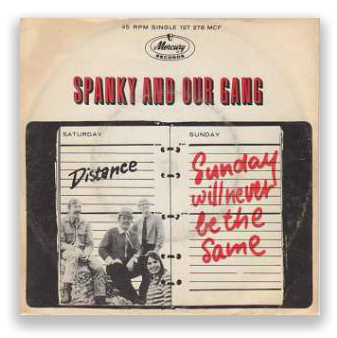We post news and comment on federal criminal justice issues, focused primarily on trial and post-conviction matters, legislative initiatives, and sentencing issues.
TRYING THE HAIL MARY
A long time ago in an office far away, Sunday Williams, a Nigerian citizen by birth, tried to get a passport. His intent was praiseworthy but his technique was not. Dismissing legalities as too time consuming, Sunday submitted a false application claiming that he was an American citizen. After all, there are over 300 million of them. Who could possibly find out he wasn’t on the list?
 The Feds, that’s who. Sunday was charged with making passport fraud in violation of 18 USC § 1542. The case suffered from a venue problem: he was charged in New Hampshire but the fraud was committed in New York. His lawyer could see the handwriting on the wall – the government would dismiss in New Hampshire and bring the case in the Eastern District of New York – so he worked out a deal where Sunday pled guilty to making a false statement to the government in violation of 18 USC § 1001. Sunday could plead to that in New Hampshire. He did, and got probation.
The Feds, that’s who. Sunday was charged with making passport fraud in violation of 18 USC § 1542. The case suffered from a venue problem: he was charged in New Hampshire but the fraud was committed in New York. His lawyer could see the handwriting on the wall – the government would dismiss in New Hampshire and bring the case in the Eastern District of New York – so he worked out a deal where Sunday pled guilty to making a false statement to the government in violation of 18 USC § 1001. Sunday could plead to that in New Hampshire. He did, and got probation.
 Now, a decade after his probation ended, Sunday will never be the same. He feels remorse eight days a week, because his conviction is keeping him from becoming a citizen for real. This is what’s known as a “collateral consequence” of the conviction. The number of such collateral consequences to a felony conviction – which are effects flowing from a felony conviction that last long after the sentence has been served – is large.
Now, a decade after his probation ended, Sunday will never be the same. He feels remorse eight days a week, because his conviction is keeping him from becoming a citizen for real. This is what’s known as a “collateral consequence” of the conviction. The number of such collateral consequences to a felony conviction – which are effects flowing from a felony conviction that last long after the sentence has been served – is large.
Sunday believed that his lawyer misled him about the immigration consequences of pleading guilty to the § 1001 charge, as well as foolishly let him admit that the false statement was in connection to a passport application. He wanted to withdraw his guilty plea due to his lawyer’s alleged mistakes.
 Ah, gloomy Sunday. To file a post-conviction habeas corpus motion, he had to be “in custody,” that is, serving his probation. What he needed was a way to raise his objections to the conviction years after the fact. To do that requires an old common law device known as a writ of error coram nobis – a remedy of last resort for the correction of fundamental errors of fact or law – to enable him to revise the factual basis of his § 1001 conviction.
Ah, gloomy Sunday. To file a post-conviction habeas corpus motion, he had to be “in custody,” that is, serving his probation. What he needed was a way to raise his objections to the conviction years after the fact. To do that requires an old common law device known as a writ of error coram nobis – a remedy of last resort for the correction of fundamental errors of fact or law – to enable him to revise the factual basis of his § 1001 conviction.
The term “coram nobis” is Latin for “before us” and the meaning of its full name, quae coram nobis resident, is “which [things] remain in our presence” Such a writ obviously cannot remedy the direct consequences of the conviction, the sentence, because he had already served that. Sunday hoped, however it could remedy the collateral consequences he still was suffering. Because the underlying facts of his guilty plea involved a false claim of United States citizenship, Sunday was ineligible to receive a visa or to be admitted to the United States under 8 USC § 1182(a)(6)(C)(ii). No waiver or exception is available.
Sunday’s argument is not important, being as it is kind of plain vanilla attorney ineffectiveness. Rather, what is interesting is the use of the writ of error coram nobis. In its modern form, the writ is ordinarily available only to a criminal defendant who is no longer in custody. The movant must explain his failure to seek relief earlier through other means, must show that he continues to suffer a significant collateral consequence from the judgment being challenged, and must demonstrate that issuance of the writ will eliminate this consequence. After the movant has done all of that, then he must show that the judgment resulted from a fundamental error.
Even after the movant has jumped through all of those hoops, a court retains discretion to grant or deny the writ. As the 1st Circuit put it in the decision handed down last week, “the Supreme Court has always envisioned coram nobis as strong medicine, not profligately to be dispensed, so we must issue this writ under circumstances compelling such action to achieve justice.”
 Here, the Court concluded that Sunday had proven collateral consequences still dogged him, and it assumed without reaching the question that lazy Sunday could show why he had not sought relief before (such as in a 28 USC 2255 motion while he was on probation). The problem, the Court said, was that he could not show that his lawyer’s decisions were wrong, let alone ineffective. Clearly, the Court said, the government intended to re-indict Sunday if a deal solving the venue problem was not struck. Making a plea deal to a § 1001 violation that avoided prison was not a bad deal at all. And as for the admission that the false statement was on a passport application, that was the factual basis for the § 1001 conviction, so Sunday could hardly avoid copping to it. Not only was counsel not ineffective, but – even if he had been – Sunday was not prejudiced.
Here, the Court concluded that Sunday had proven collateral consequences still dogged him, and it assumed without reaching the question that lazy Sunday could show why he had not sought relief before (such as in a 28 USC 2255 motion while he was on probation). The problem, the Court said, was that he could not show that his lawyer’s decisions were wrong, let alone ineffective. Clearly, the Court said, the government intended to re-indict Sunday if a deal solving the venue problem was not struck. Making a plea deal to a § 1001 violation that avoided prison was not a bad deal at all. And as for the admission that the false statement was on a passport application, that was the factual basis for the § 1001 conviction, so Sunday could hardly avoid copping to it. Not only was counsel not ineffective, but – even if he had been – Sunday was not prejudiced.
 A coram nobis has always been a long-shot pleading. The Circuit said, “A Hail Mary pass in American football is a long forward pass made in desperation at the end of a game, with only a small chance of success. The writ of error coram nobis is its criminal-law equivalent.”
A coram nobis has always been a long-shot pleading. The Circuit said, “A Hail Mary pass in American football is a long forward pass made in desperation at the end of a game, with only a small chance of success. The writ of error coram nobis is its criminal-law equivalent.”
So, what’s next, Sunday? Given the current Administration, probably deportation.
Williams v. United States, Case No. 16-2147 (1st Circuit, June 8, 2017)
– Thomas L. Root

